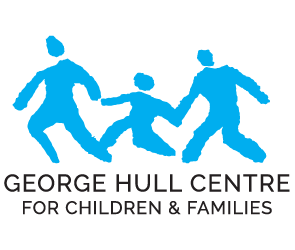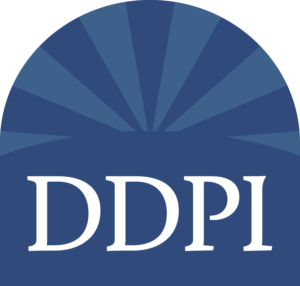Contact Us 416-622-8833
Dyadic Developmental Psychotherapy 2021 Conference
|
It's a Wrap!
Thanks to all speakers and participants for making the DDP 2021 conference a wonderful success. Read below for conference details.

The George Hull Centre Institute of Childhood Trauma & Attachment and the Dyadic Developmental Psychotherapy Institute invited everyone who works with children, including professionals and students in mental health, education, child welfare, and juvenile justice -— as well as parents and caregivers, to learn, discover resources and make connections that support our work at this three day virtual conference.
When children feel scared, alone, and abandoned, due to relational trauma early in their lives, they learn that the world and relationships are not safe they learn not to trust those who care for them. The emotional walls these children build to protect themselves from further pain frequently keep them stuck in shame, loneliness, and confusion. DDP teaches caregivers and professionals across sectors to harness the power of connection to transform this suffering into healing and the discovery of comfort and joy.
DDP supports parents and children in developing close, powerful attachment bonds between caregivers and their children. DDP integrates research in the areas of attachment theory, developmental trauma, the neurobiology of trauma, attachment and caregiving, intersubjectivity theory, and child development.
At the conclusion of this conference, participants will understand how relational safety is critical to prepare new learning for individuals, families, organizations and systems and how DDP and AEDP create that safety. Participants will learn about/be able to explain the importance of cultural humility and anti-oppressive practices in trauma-informed work.
Schedule
Monday June 14, 2021 – Pre Conference 9:00am – 12:30pm EST
- Healing Relational Trauma Through Dyadic Developmental Psychotherapy An Intro to DDP with Dr. Dan Hughes, founder and developer of DDP. 5 hrs pre-recorded content available June 1; 1.5hr live Q&A on June 14
- Stay with It and Stay with Me: Experiential Processing of Deep Relational Experience with Dr. Diana Fosha, developer of AEDP (Accelerated Experiential Dynamic Psychotherapy) and director and founder of the AEDP Institute. 5 hrs pre-recorded content available June 1; 1.5hr live Q&A on June 14
Tuesday June 15, 2021 – Day 1 8:15am – 2:30pm EST
- The Integration of Accelerated Experiential Dynamic Processing & Dyadic Developmental Psychotherapy with Dr. Diana Fosha and Dr. Dan Hughes, who will use clinical examples to highlight how safety is created and traumatic experiences are integrated.
- Symptoms of Trauma in Young Children & Interventions with Dr. Helen Minnis, Professor of Child and Adolescent Psychiatry at the University of Glasgow.
- Historias De Mis Padres (Stories of my Parents) with Randy Maldonado, LCSW, experienced trauma-informed service provider for BIPOC youth & families and racial trauma consultant.
Wednesday June 16, 2021 – Day 2 9:00am – 3:00 pm EST
- Indigenous Approaches to Relational Trauma with Dr. Patricia Vickers, Indigenous teacher, artist, psychotherapist and spiritual director.
- Clinical Reflections: Panel Discussion on DDP Practices, with DDP clinicians. Moderated by Dr. Sian Phillips and Dr. Dan Hughes.
- The Acute and Chronic Effects of Early Life Stress on Brain Development with Dr. Jon Baylin, Clinical Psychologist and author.
- Whose Shame is it Anyway? with Hon. Jean Augustine, P.C., C.M., O.Ont, C.B.E.
Participants will have access to a recording of the conference until July 16, 2021. For Educational Credit Info (Psychiatrists, Psychologists, Psychotherapists, Social Workers, Therapists) see FAQ at bottom of page.
Speakers
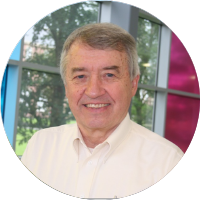
Dan Hughes, Ph.D. is a clinical psychologist who founded and developed Dyadic Developmental Psychotherapy (DDP), the treatment of children who have experienced abuse and neglect and demonstrate ongoing problems related to attachment and trauma. This treatment occurs in a family setting and the treatment model has expanded to become a general model of family treatment. Dan speaks internationally and is engaged in extensive training, consultation, and supervision, including the certification of therapists in his treatment model. He also is the author of numerous books and articles
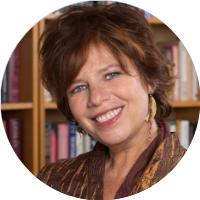
Diana Fosha, Ph.D. is the developer of AEDP (Accelerated Experiential-Dynamic Psychotherapy), and Director of the AEDP Institute. For the last 20 years, Diana has been active in promoting a scientific basis for a healing-oriented, attachment-emotion- and transformation-focused trauma treatment model. Fosha’s work focuses on integrating neuroplasticity, recognition science and developmental dyadic research into experiential and transformational clinical work with patients. The most recent work focuses on flourishing as a seamless part of healing attachment trauma. She is the author of The transforming power of affect: A model for accelerated change (Basic Books, 2000); co-author, with Natasha Prenn, of Supervision essentials for Accelerated Experiential Dynamic Psychotherapy (APA, 2016); 1st editor, with Daniel Siegel and Marion Solomon of The healing power of emotion: Affective neuroscience, development & clinical practice (Norton, 2009), and editor of the soon to be released AEDP 2.0: Undoing aloneness and the transformation of suffering into flourishing (APA, in press). Three DVDs of her live AEDP clinical work, including one documenting a complete 6-session treatment, and one on clinical supervision have been issued by the American Psychological Association (APA). Described by psychoanalyst James Grotstein as a “prizefighter of intimacy,” and by David Malan as “the Winnicott of [accelerated] psychotherapy,” Diana Fosha’s writing style is powerful, precise yet poetic and evocative, Her phrases, —“undoing aloneness,” “existing in the heart
and mind of the other,” “stay with it and stay with me,” “rigor without shame,” and “True Other” capture the ethos of AEDP.
Diana Fosha lives and practices in New York City, presents at international conferences, and leads workshops and trainings worldwide. Many of her papers are available through the AEDP website at www.aedpinstitute.org
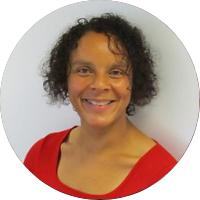
Helen Minnis, Ph.D. is Professor of Child and Adolescent Psychiatry at the University of Glasgow. She has had a longstanding clinical and research focus on the psychiatric problems of abused and neglected children. She has collaborations with colleagues at the Institute of Psychiatry, Psychology and Neuroscience at King’s College London, the Universities of Aalborg and Aarhus, Denmark, Tulane University, New Orleans, US and with the Gillberg Neuropsychiatry Centre, Gothenburg, Sweden. Currently her focus is on intervention research, including a randomised controlled trial of an infant mental health service for young children in foster care and a randomised controlled trial of Dyadic Developmental Psychotherapy for primary school-aged children in adoptive or foster placements.
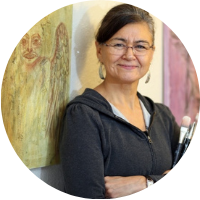
Patricia Vickers, Ph.D. Indigenous teacher, artist, psychotherapist and spiritual director, is a featured presenter. Dr. Vickers grounds her trauma service training and clinical sessions on ancestral law and ancestral teachings of soul loss and soul retrieval and incorporates these understandings in her sessions.
http://www.patriciajunevickers.com
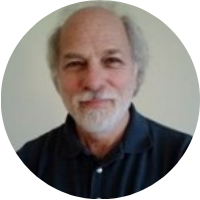
Jon Baylin received his Ph.D. in clinical psychology from Peabody College of Vanderbilt University in 1981. For the past twenty years, while continuing his clinical practice, he has immersed himself in the study of neuroscience and in teaching mental health practitioners about the brain. He has given numerous workshops for mental health professionals on “Putting the Brain in Therapy” and has delivered keynote addresses internationally and nationally at conferences on childhood trauma and attachment. Several years ago, Dr. Baylin began a collaborative relationship with Daniel Hughes, a leader in the field of attachment-focused therapy. Their first book, Brain Based Parenting, was released by Norton Press in the spring of 2012 as part of the Norton series on Interpersonal Neurobiology. In 2016 their second book, The Neurobiology of Attachment-focused Therapy, was released by Norton and also included in the Interpersonal Neurobiology series.
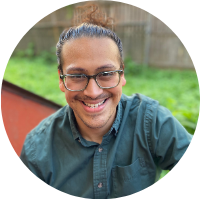
Randy Maldonado is a Licensed Clinical Social Worker with extensive
experience providing trauma-informed services to BIPOC youth and
families in New York City and serves as a consultant on topics of racial
trauma, boundaries, and radical healing. Randy is also a member of the
Dyadic Developmental Psychotherapy Racial Equity and Social Justice Committee.
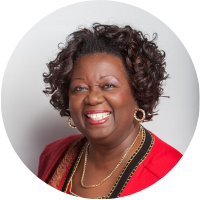
Hon. Jean Augustine, P.C., C.M., O.Ont., C.B.E., made history as the first Black Woman elected to Canada’s Parliament, serving from 1993-2006. Her roles included Parliamentary Secretary to the Prime Minister; Minister for Multiculturalism and the Status of Women; Chair of the Foreign Affairs Committee; and Deputy Speaker.
Her legislative successes include both the historic Black History Month Motion, and the Famous Five Motion honouring women’s suffrage.
From 2007 to 2015, she was Ontario’s first-ever Fairness Commissioner.
In 2008, the Jean Augustine Chair in Education, Community & Diaspora was launched at York University to help advance education, equity and inclusiveness.
Today, also in her name are a Girls’ Leadership Academy in Scarborough; a Centre for Young Women’s Empowerment and municipal park in Etobicoke; a Secondary School in Brampton, and a multi-purpose complex and district park in Vaughan.
She is a member of the Order of Canada and Commander of the Order of the British Empire; holds honourary doctorates from the universities of McGill, Toronto, York, Windsor, Waterloo, Guelph, and Trent; and supports scholarships at Centennial College, George Brown, and Humber College.
More info: www.jeanaugustine.ca
Panelists
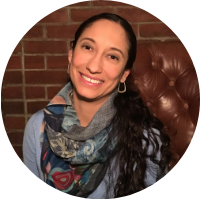
Elizabeth Studwell is a licensed clinical psychologist specializing in working with children, adolescents, and families. Her passion is working with children and young adults with their families. She has experience working in psychiatric hospitals, behavioral day schools, and community mental health clinics as well as foster care agencies. She has specialized in the area of adoption/foster care and attachment work for over seven years now and have worked in the foster care
system in two different countries. One of the most powerful experiences was to have worked at the orphanage in Bogotá, Colombia where she was adopted from. She lived and worked there providing therapeutic support to children and parents as they prepared for adoption as well as for children still working towards reunification. She has many years of experience helping parents and their, often transracially adopted children connect, reconnect and thrive. She primarily works from an attachment-based trauma-focused and dyadic developmental psychotherapy approach which is specifically focused on treating children with early attachment disruptions and trauma specific to those who have been in foster care and/or adopted.
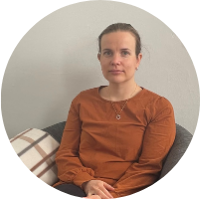
Johanna Stenström holds a Master of Arts (Psychology) and is a Clinical Psychologist, Cognitive Psychotherapist and a DDP Practitioner who has worked in a child psychiatric outpatient clinic in Kymsote, Finland (Social and Health Services in Kymenlaakso) since 2005.

Hannah Sun-Reid is a Registered Psychotherapist, Certified Play Therapist, Supervisor and Trainer; and a certified DDP Practitioner, Consultant and Trainer. Hannah is also certified or trained in Theraplay, Sandtray Worldplay, EMDR, and TIR. Hannah has 30 years’ experience working with children and families who experience life challenges including developmental and emotional difficulties, trauma and loss. Hannah provides supervision and consultation to therapists and organizations; and conducts training workshops nationally and internationally. Hannah is also an author of children’s books and therapeutic games. Hannah lives and works in Ontario Canada. www.hannahsunreid.com
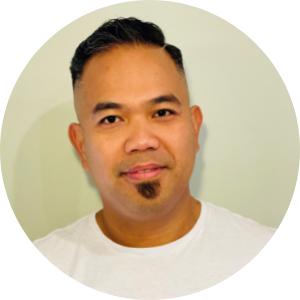
Alberto Veloso, MPsychiatry, CertChildAdolPsych, FRACP, FRANZCP is a specialist child and family psychiatrist and general paediatrician from Melbourne Australia. Among other psychiatry roles, Alberto leads the team at Relational Minds, a Child and Family Mental Health Clinic that lives DDP at its core. They treat young people with mental illness in the community by empowering their parents and carers through connection and integrated care.
Moderators
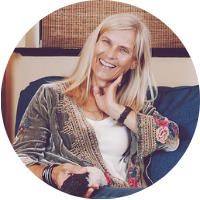
Sian Phillips, Ph.D. is a psychologist who has a private practice and specializes in the assessment and treatment of children who have experienced developmental trauma and the families that look after them. She consults to a number of agencies that are committed to using DDP as a framework to understand and work with biological families as well as foster and adoptive parents. She has developed a specialized school program to work with students whose attachment and trauma difficulties prevent them from accessing regular education. Staff are trained in DDP and DDP principles are an integral part of the programming. She also supports school boards who are using DDP to developing trauma-informed schools. She has two recent publications: Belonging: A Relationship-Rased Approach for Trauma-Informed Education (Phillips, Melim and Hughes 2020) and Working with Relational Trauma in Schools (Golding, Phillips & Bomber, 2020).
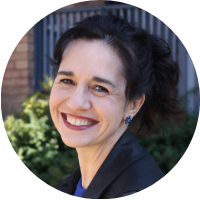
Leticia Gracia, M.S.W., R.S.W., is the Director of the Institute of Childhood Trauma and Attachment at The George Hull Centre, a large, community-based children’s mental health centre. Having worked with children and families for 25 years, Leticia has extensive clinical experience with a focus on treating trauma and attachment difficulties. Previously the Director of the Community Clinic for 6 years, Leticia has a passion for developing and implementing high quality clinical programs to treat the most complex of cases. Leticia was instrumental in obtaining significant Innovation Grants from the Ontario Centre of Excellence for Child and Youth Mental Health to implement Dyadic Developmental Psychotherapy in the Community Clinic, and to develop a school-based socio-emotional learning program in partnership with the Toronto Catholic District School Board.
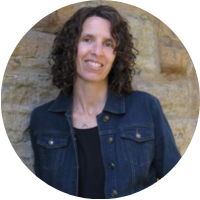
Betty J.B. Brouwer, has more than 20 years of experience working with children, adolescents and their families. Betty works for the Shalem Mental Health Network, based in Hamilton, Ontario, where she serves as the Director of Shalem’s “Linking Lives/Building Attachment” program and as the Artistic Director of Shalem’s “RE-create Outreach Art Studio” (a drop-in studio for street-involved youth in downtown Hamilton).
Betty works primarily with children, adolescents and their families as well as adults who have experienced trauma and loss in their lives. She finds it an honour and privilege to enter into people’s lives and help facilitate healing and change. In addition to her clinical work, Betty also presents at various conferences and workshops.
Betty uses Dyadic Developmental Psychotherapy as her primary treatment model in her work. In all areas of her life she tries to embody a PACE attitude at work, home and play.
Betty holds a Master’s degree in Child and Adolescent Studies from the University of Guelph, Ontario and a Master’s level diploma from the Toronto Art Therapy Institute, Toronto.
She is a registered art therapist with the Canadian Art Therapy Association (CATA) and the Ontario Art Therapy Association, and she is a certified play therapist with Play Therapy International and the Canadian Association of Child and Play Therapy.
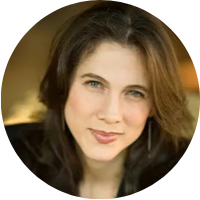
Courtney Rennicke, Ph.D. is a Columbia University trained Clinical Psychologist who runs a psychotherapy group practice, Rennicke & Associates, focusing on relationship-based and innovative psychotherapy for children and adults in New York City. Dr. Rennicke and her clinical staff specialize in providing attachment-focused family treatment to adoptive and foster care children and their families. Dr. Rennicke is also the Co-Founder and former President of the Adoption Foster Care Therapist Network, a collective of mental health professionals specializing in attachment disorders in adoptive and foster care children and their families throughout New York State, New Jersey, and Connecticut.
In addition to certification in Dyadic Developmental Psychotherapy, Dr. Rennicke has received advanced training in Accelerated Experiential Dynamic Psychotherapy (AEDP) for relational and attachment work with adults, as well as Collaborative Problem Solving (CPS) for emotional dysregulation and behavioral issues with children and adolescents. Dr. Rennicke has also supervised and taught psychology externs, social workers, post-doctoral fellows and psychiatry PGY-III residents in a range of treatment modalities at New York University Medical Center/Bellevue Hospital, Teachers College/Columbia University, and Yeshiva University.
|
Rates
Full Conference June 14-16 $350
Full Conference 10+ ppl group $297.50
Full Conference 20+ ppl group $280
2 Day Conference June 15 & 16 $275
1 Day Conference June 15 or 16 $175
Canadian Psychiatric Association accreditation fee $75
Groups of 10+ people receive 15% off and groups of 20+ people receive 20% off full conference rate (at checkout).
Full time college or grad school students pay 50% of the conference fee. Email lisa@eventpartner.ca with a scanned copy of your current class schedule or ID badge photo to receive your special discount code.
Rates do not include Eventbrite fee.
Frequently Asked Questions
Full conference registrants have access to:
- Pre-conference recordings available two weeks prior to conference and Speaker Q&A Sessions on June 14.
- All sessions on conference days as well as session recordings for one month following the conference.
- Virtual Hub and networking access.
- A certificate of attendance.
One & Two Day registrations:
- All of the above for day or days purchased.
Pre-Conference Only registrations:
- Pre-conference recordings available two weeks prior two conference;
- Live Q&A Sessions on June 14 with pre-conference facilitators.
On June 1st, 2021, you will be given access to the virtual hub where you will find all the information you need to take full advantage of what the conference has to offer including links, conference agenda, speaker information and networking.
We will be posting the recordings of all sessions to the virtual hub after the conference. Session recordings will be available for one month. You will have access to session recordings for the days you are registered.
All cancellations must be sent in writing via email to instituteconferences@georgehull.on.ca. Refund requests will be accepted up until May 15, 2021 at 5PM EST. A $50 administrative fee will be applied to all refunds. Eventbrite ticket fees are non-refundable. All refunds will be made after the conference. Cancellations after May 15, 2021 or no shows will not be eligible for a refund.
Registrations may be transferred to another participant without penalty up until May 30, 2021. A balance may be due based on the registration type (example: if the original registrant received a student discount for which the new registrant does not qualify). Requests for name change can be forwarded to lisa@eventpartner.ca.
Groups of 10+ people receive 15% off and groups of 20+ people receive 20% off full conference rate (at checkout). Full time university or grad school students pay 50% of the conference fee. Email lisa@eventpartner.ca with a scanned copy of your current class schedule to receive your special discount code. Limited spots available.
Yes. At the payment stage when purchasing your tickets, you can select “pay by invoice.”
If paying by invoice, your total can be found on the order confirmation under order summary. Payment is due immediately upon receipt.
Please make cheques payable to:
The George Hull Centre for Children & Families
81 The East Mall
Suite 300
Etobicoke, ON M8Z 5W3
|
More Questions? Please email us at instituteconferences@georgehull.on.ca
Special Thanks to the Dyadic Developmental Psychotherapy Institute!
The Dyadic Developmental Psychotherapy Institute (DDPI) is a training institute whose purpose is to provide training, certification, and supervision in Dyadic Developmental Psychotherapy and Dyadic Developmental Practice. DDPI and its overseeing body, the DDPI Board of Directors, were established in 2009.
DDPI is a not-for-profit organisation and is based in the USA.
DDPI aims to educate, facilitate, promote and advance Dyadic Developmental Psychotherapy and Dyadic Developmental Practice. DDPI provides a robust certification of this internationally.
DDPI provides a certification process for practitioners and therapists who are using the DDP model of intervention. Certified Practitioners in DDP have demonstrated their knowledge and competence in using the model’s core principles in their practice.
This conference was co-developed with the Dyadic Developmental Psychotherapy Institute and was planned to achieve scientific integrity, objectivity and balance.
